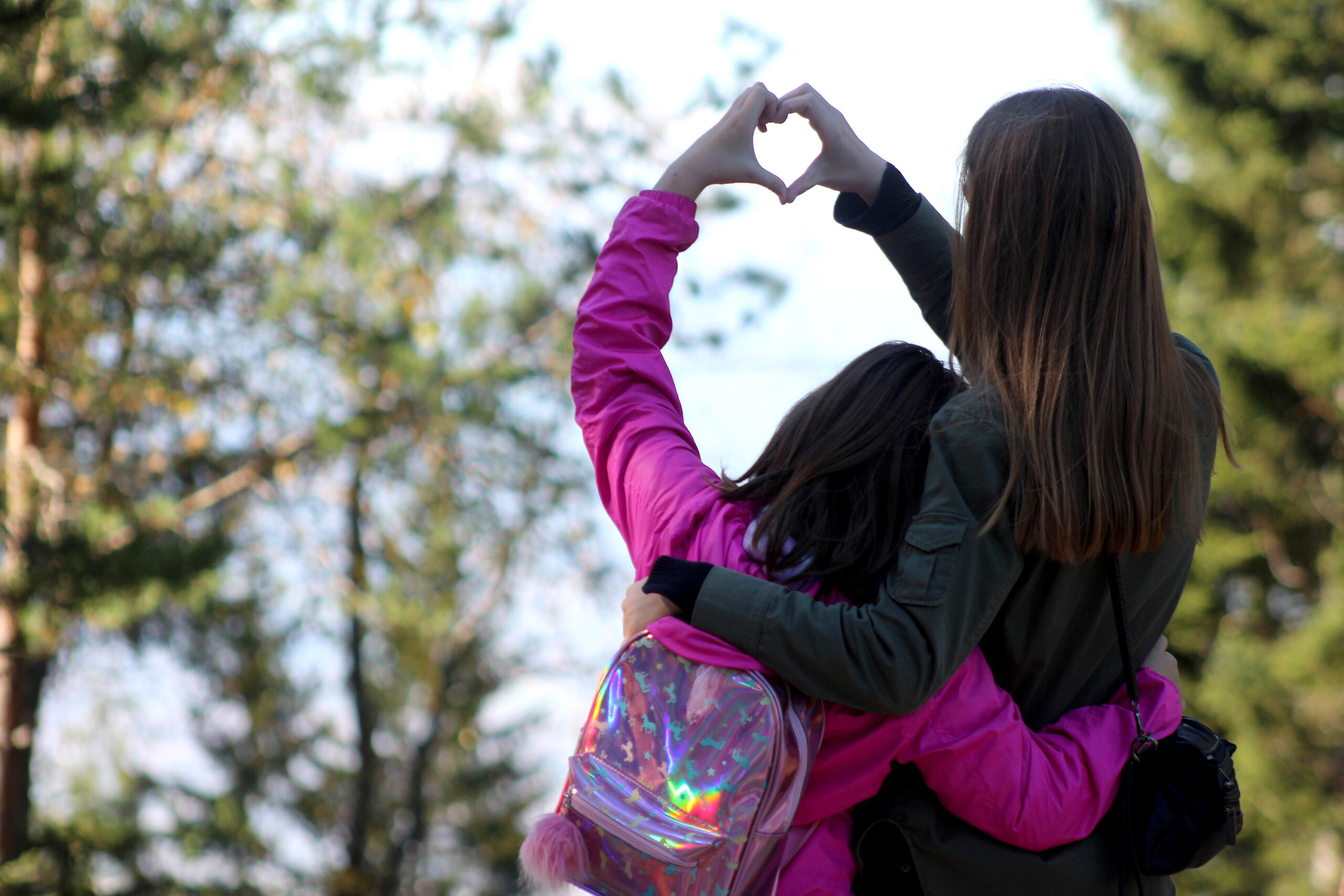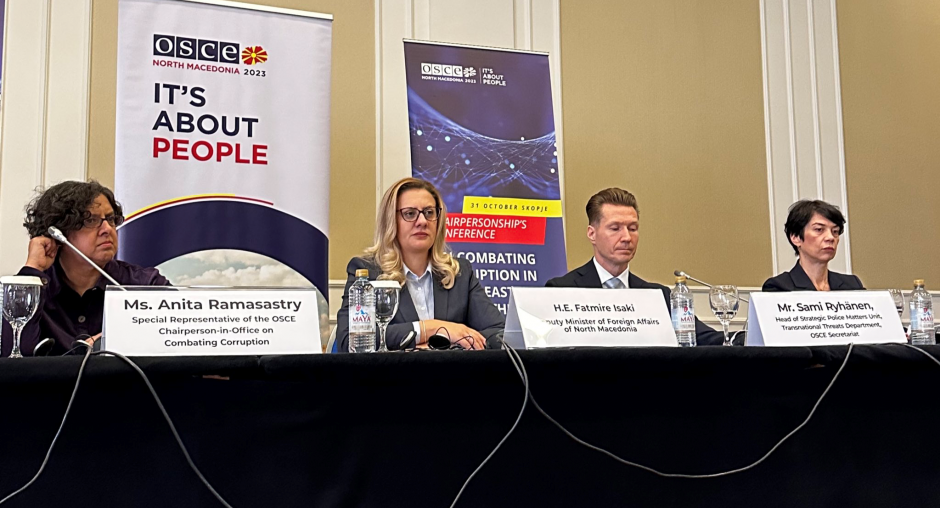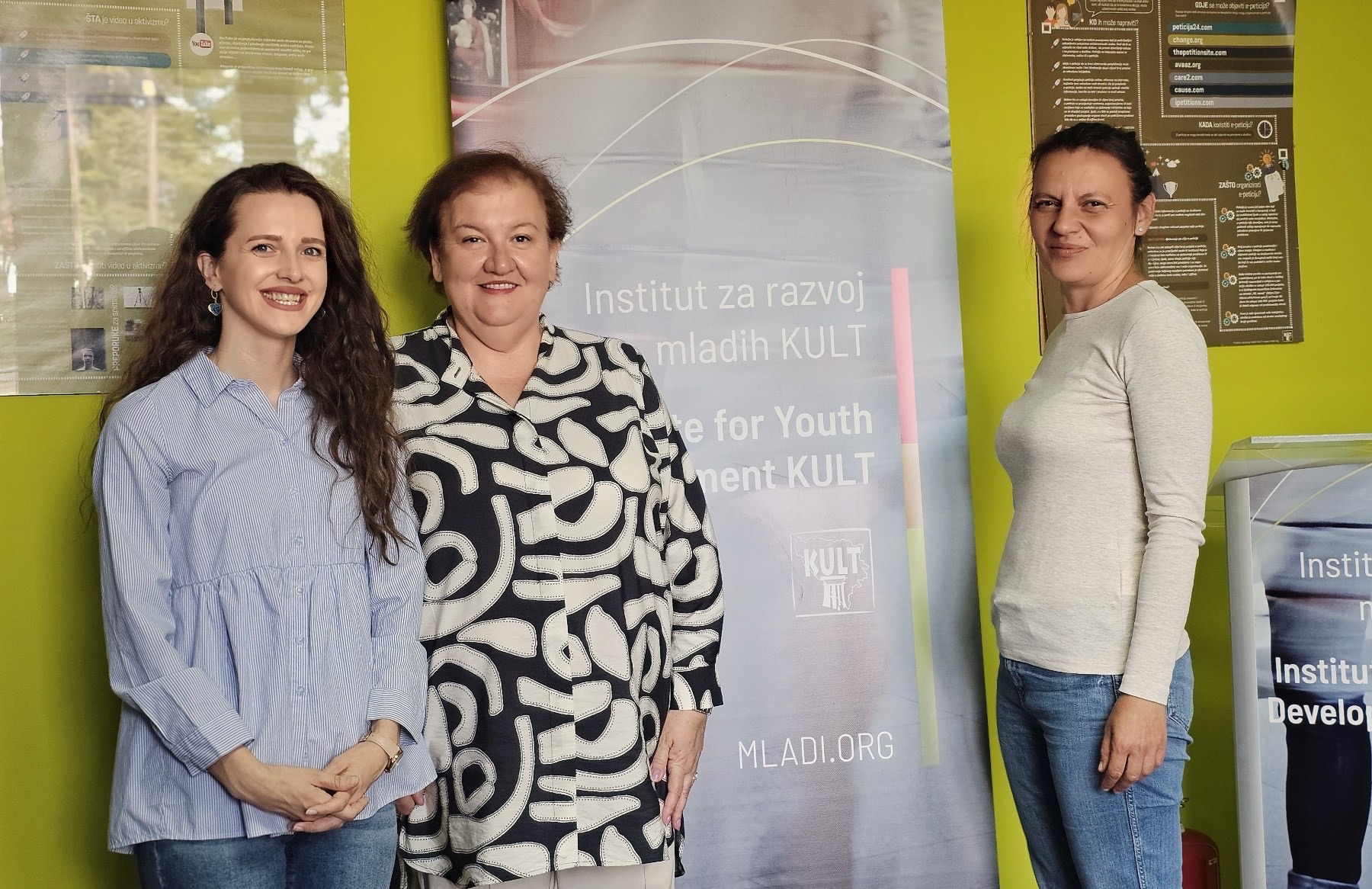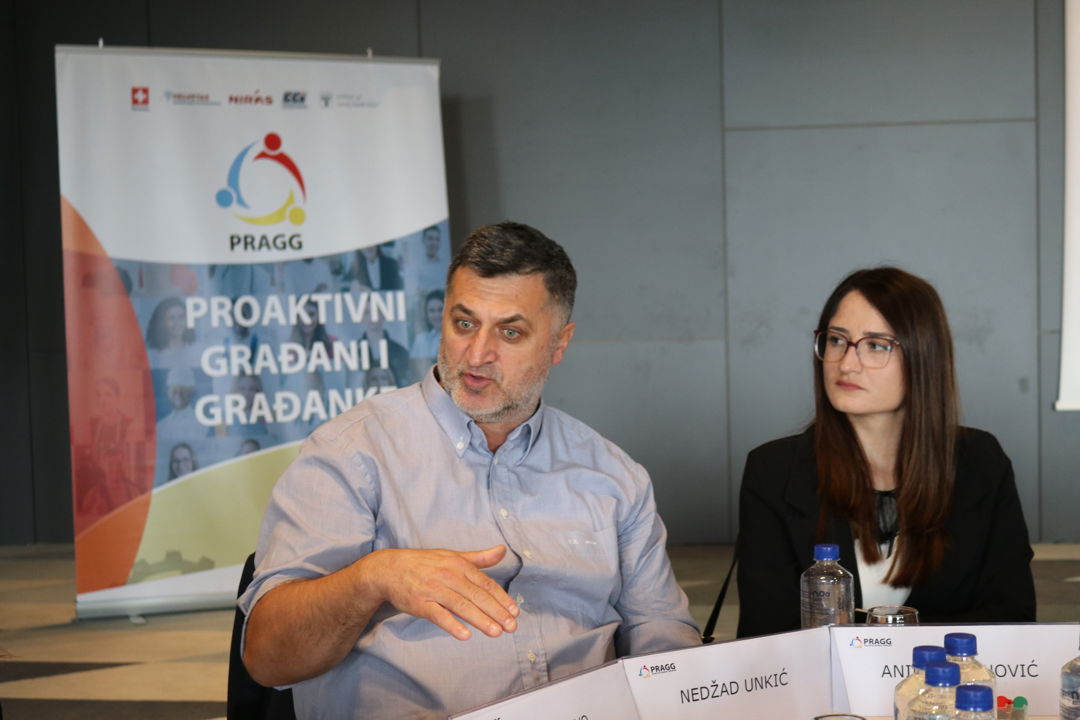“I can tell Amila everything; I call her my sister. I tell everyone that I have a big sister. She once came to pick me up at school, and that made me really happy.” Lejla* talks lovingly about her “big sister” Amila Balić, who spends time with her once a week through the “Big Brother, Big Sister” program.
“I’m in the fourth grade, and I love school. I just got an A in English; I only made one little mistake! I had a great time with Amila; we had so much fun and went to all sorts of places together. My favorite was our visit to the Museum of Illusions. I like to do different things with Amila, and I cheer them up whenever we go somewhere – I hug her, and we walk side by side. If a week goes by and I don’t see her, I’m sad”, says Lejla. Amila tells us she has been participating in the program for two years now:
“Lejla and I have been friends for about a year; this is already our second cycle. From the point of view of a volunteer who spends time ‘one on one’ with my Lejla, I can say that it’s a really great experience. We did almost everything from our wish list in our year together…”
“Well, not quite – we’ve got the puppet show left!” Lejla interjects.
“Yes, we’re still waiting to see a puppet show. We went to the youth theater and saw a play, visited the cinema, went to the park, and went for walks along Wilson’s promenade. We use this time to talk about everything—school, homework, reading. We we play board games, we often play Uno, and other competitive games,” adds Amila, with Lejla nodding in agreement.

Amila, a dentist by profession, decided to participate in the Big Brother Big Sister Program out of her love for children and helping others through volunteering:
“Besides spending time with children, I also participate in other activities, such as workshops and group meetings with other volunteers. During these meetings, you get positive reactions; they put you in a good mood and energize you for the new week. You also have support, friendship, companionship, and it’s very helpful for all of us volunteers,” says Amila, whom we met together with her little protege Lejla on one of the trips to Trebević.
There, we also met Haris*, who told us he loves playing badminton, going for walks and socializing. He completed one cycle and is now waiting for a new volunteer: “I hung out with volunteer Amina, and I had a great time with her. We went for walks and had a nice time together”.
Adina*, a young girl, is here with volunteer Amna Gazibegović. She told us she likes outings and her regular meetups with Amna. Amna completed her studies in social work and enrolled in a master’s degree program. For her, volunteering means helping others while also gaining relevant practical experience: “I’ve been volunteering here for three cycles now. I’ve been friends with Adina since the beginning, and we’ve been together for two years. We always make a plan for every month, we make sure that we spend as much time outdoors as we can if the weather is good, because Adina loves being outdoors so we make the best of nice weather. This experience is so fulfilling because I can grow and develop my personal skills in addition to working with children”.

There are also other volunteers on the trip who participate in group activities or are preparing to work with children. Selmina Sažić is in her first year of volunteering, and is happy with the experience so far: “I’m studying pedagogy, and that’s one of the reasons I joined the program — to experience something new. On the other hand, I’m here to make a child happy, to offer them love and support because I think all children deserve that.”
Ajna Tucak, Ema Šahbegović and Edna Smajić are also in their first year of volunteering.
“I’m looking forward to spending time with the children and all the future activities. I’m a third-year psychology student, and last year, I had the opportunity to engage with children on a similar project. I was particularly interested in the opportunity for one-on-one interaction and personal engagement,” says Ajna. Ema also looks forward to working with children and learning something new. “I’m a computer science student, so my field is not directly relevant, but I want to do something good; I want to make children happy and make them feel better after spending time with me and talking to me.”
Edna is a social worker, and she says that partly motivated her to start volunteering: “I love working with children, but I’m also doing this for my own personal development and education.”

Amina Šehović has been part of group activities for three years: “My colleagues and I develop workshops and plan all the events intended for children and volunteers. I volunteer because it’s fulfilling; it helps me grow, gain more experience, and learn new skills“, she says.
Social worker Emina Ahmetspahić has volunteered in the program for three years: “I’ve gained so much valuable experience and knowledge. We spend time with children in group activities, organize workshops, we all enjoy ourselves, spend time outdoors doing different useful and fun activities.”, she says. Džejla Hukara, who is also a youth worker, is in her second cycle of volunteering and has the opportunity to be a big sister for the second time:
“Last year, I had a little sister, and this year, I am mentoring a young girl from the Children’s Home in Bjelave. Unfortunately, children from the Home are not here today because of illness. “I joined the program to support children and for the sake of my own professional development,” says Mia Elezović, a psychology student.
Maida Smajić, a student at the Faculty of Mechanical Engineering in Sarajevo, says that although her future profession is not directly related to working with children, she still wants to contribute: “I want to help make a child feel happy and satisfied, and I also want to grow and experience something new.”

Izanela Mahmutović, coordinator of the “Big Brother, Big Sister” program at the Association for Addiction Prevention NARKO-NE, says they recruit new volunteers in cooperation with the Children’s Home Bjelave Home and social welfare centers. These centers identify children who would benefit from participating in the program.
“After that, we train the volunteers, we match them with children, and then we monitor their meetings, which happen once a week. We also organize group activities for all volunteers in the program, continuously support them in developing the necessary skills for interacting with children, and help them when they face challenges. Group activities allow children to interact with peers and volunteers, fostering friendships and mutual understanding. Volunteers also connect and support each other”, says Izanela, noting that the Program is particularly popular in the Children’s Home:
“Children aged 6 to 14 participate in the program, so when they turn six they ask: ‘Can I get my big sister now?’. For them, having a big brother or sister is important because they’re used to doing everything in groups. Having someone focused just on them, guiding and caring for them, makes them feel special. They have our volunteers’ undivided attention.” Children from families are nominated by social services for a variety of reasons:
“Sometimes, it’s because there are many children in a family and parents lack the time or capacity to give them individual attention. Other times, it could be a child with disabilities or a child growing up with grandparents who are unable to fully care for them. Despite different circumstances, the goal remains the same: to ensure that these children have the opportunity to experience childhood like any other child.”

Ivana Radić, the executive director of the “Big Brother, Big Sister” Foundation, explains that the Foundation’s mission is to facilitate mentoring programs by empowering partner organizations and volunteers and collaborating with public institutions. The goal is to provide positive role models for children and young people across BiH. “Our vision is for all children and young people in BiH to have equal opportunities to develop essential life skills for a healthy childhood and development and to take responsibility for building a just society. The Foundation’s overall goal is to nurture universal human values through volunteerism, advocacy, support, and philanthropic activities. By doing so, we contribute to the healthy development of children and young people, helping them become model citizens and responsible members of society.”
The Foundation serves as the umbrella organization responsible for ensuring the “Big Brother, Big Sister” program is implemented according to its Quality Standards. It also provides financial and advisory support to partner organizations.
“The Foundation also raises funds to ensure that every child in need has a mentor – a big brother or sister, and we do this through promotional and crowdfunding campaigns,” says Iman Muratović, public relations, and fundraising assistant.
Ivana and Iman say that the mentoring relationships benefit everyone involved: “Since children are the primary beneficiaries of the ‘Big Brother, Big Sister’ Program, it’s crucial to highlight the positive impact this mentoring has on them. The skills they learn while interacting with their big brother or sister are applicable in their everyday lives, and they often stay in touch with volunteers for many years after completing the Program. This is where we clearly see that mentoring is a two-way street where everybody benefits.”

In recent years, children with developmental disabilities have also been included in the “Big Brother, Big Sister” program: “We are developing a program fully adapted to their needs. During the coronavirus pandemic, we successfully implemented an online mentoring program, allowing the volunteers and children to continue nurturing friendships and reaching milestones together. We often see former beneficiaries of the Program return to the Foundation as volunteers. They offer suggestions for improving our work and new ideas on engaging former users in our activities.”
The Foundation offers mentoring to partner organizations across Bosnia and Herzegovina to help them implement the Program, which connects young people aged 20 to 30 with children from vulnerable backgrounds. The foundation monitors children’s progress across multiple parameters: their relationship with volunteers, their use of free time, participation in educational and cultural activities, socially desirable behaviors, and self-image.
“Our program’s results include progress made by the children, but it is also very clearly beneficial for our volunteers. The program emphasizes one-on-one time between children and volunteers, but group activities and outings also make everyone happy. While working with us, volunteers receive professional support from our coordinators and collaborators through individual and group advisory meetings and workshops,” says Ivana Radić. She noted that more than 2000 children and volunteers took part in the program in BiH over the course of 20 years.

Despite nearly 20 years of experience and a well-organized program, the Foundation says its collaboration with the Institute for Youth Development KULT, particularly through the Localworks program, has helped them improve even further: “We’ve been following the Institute’s work for a long time and had the opportunity to attend several of their trainings and learn more about their work. When they invited us to participate in organizational capacity assessment using their assessment (POK) and development (ROK) tools, we realized it was the perfect moment to focus on strengthening our internal structure and building our existing capacities. I have to admit that it was not easy; the process itself is demanding and time-consuming, but it is necessary, and honestly, we at the foundation feel stronger after going through the whole process”, says Ivana Radić about the Foundation’s cooperation with the Institute.
“The POK tool revealed our shortcomings, and we selected three areas to focus on in our organizational capacity-building process: Project cycle management, Public and media relations, and Finance and administration. Through this entire process, we improved our policies and procedures, internal forms, records, reporting forms, etc. KULT’s support included various trainings, individual consultations, hiring experts, and the Job Shadowing visit. Improvements in other areas came spontaneously, but the most noticeable progress happened in the finance and administration segment”, says Ivana Radić, concluding that:
“Through this process with the Institute, we realized the importance of having a well-structured and organized Foundation. Operating according to standards and maintaining this strong internal structure is essential for us to expand further and develop our ideas and projects with other organizations and donors.”
*Names of the children have been changed to protect their privacy
















Leave a comment